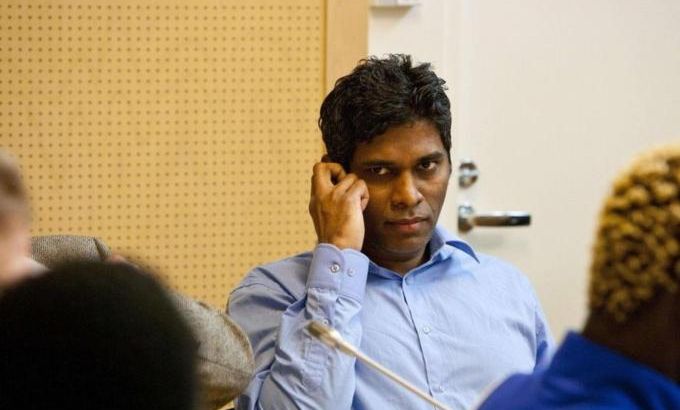Singapore ‘helping’ match-fixing inquiry
Full cooperation with enforcement agencies pledged after Europol probe shows city-state as centre of betting syndicate.

Singapore police have said they are they helping European authorities in their investigation into an international crime syndicate that rigged hundreds of football matches in Europe and elsewhere.
In the latest indication that the Asian city-state is at the heart of a global match-fixing empire, Europol said on Monday they had uncovered a network rigging hundreds of games, including in the Champions League and World Cup qualifiers.
Keep reading
list of 4 itemsHolders Man City go out of Champions League on penalties to Real Madrid
Barca crash out as Mbappe brace leads PSG to Champions League last four
Saudi reviews football fan rules after whip attack
Europol said a five-country investigation had identified 380 suspicious matches targeted by a Singapore-based betting cartel, whose illegal activities stretched to players, referees and officials across the world.
In a statement on Tuesday, Singapore police said.”The authorities in Singapore are assisting the European authorities in their investigations into an international match-fixing syndicate that purportedly involves Singaporeans.
“Singapore takes a strong stance against match-fixing and is committed to working with international enforcement agencies to bring down transnational criminal syndicates, including those that involve the acts of Singaporeans overseas, and protect the integrity of the sport.”
A further 300 suspicious matches have been identified outside Europe in Africa, Asia, and South and Central America, in the course of the Europol investigation.
Threat to clean image
Analysts said revelations about the scale of the scandal could damage Singapore’s squeaky-clean image as one of the world’s least corrupt nations.
Singapore’s role in international match-rigging has long been clear, with Wilson Raj Perumal jailed in Finland in 2011 and another Singaporean, Tan Seet Eng or Dan Tan, wanted in Italy over the “calcioscommesse” scandal.
So far, there apparently has not been any urgency to arrest Tan, despite multiple agencies in Singapore potentially having jurisdiction in the case.
Last May, Singapore authorities charged a top referee and a former Malaysian international with conspiring to fix a Malaysian Super League match.
The latest announcement uncovered the huge scale of the activities, and raised potential problems for Singapore’s reputation, as well as questions about how authorities are dealing with the match-fixing syndicates.
A spokesman for the Corrupt Practices Investigation Bureau told the Associated Press news agency that Singapore authorities were assisting Europol and Interpol with their investigations but declined to comment on whether or not the CPIB was involved with the investigations, despite being the government body primarily responsible for investigating and prosecuting corruption in the public and private sectors.
‘Serious view’
The Football Association of Singapore (FAS) said it takes “a serious view of allegations pertaining to match-fixing and football corruption” and vowed to “spare no effort” to crack down on any such activities.
“The problem of match-fixing is not just confined to Asia,” FAS said in a statement.
“It is a global problem and FAS will continue to work closely with the relevant authorities, both at the domestic and international levels, to combat match fixing and football corruption aggressively.”
Last February, 18 players in Malaysia were suspended for between two and five years on charges of match-fixing.
Chinese courts handed out lengthy prison sentences last year to senior officials and players for accepting bribes, while South Korea has taken measures to improve the structure of its league after the match-fixing scandal of 2011, when 46 contracted or former players were charged with corruption.
Neil Humphreys, a popular sports columnist and author, asked why “so little is being done to question Singaporean individuals allegedly involved in such a global match-fixing operation”.
“More pertinently, the issue has not received quite the same front-page media attention that it has in other football-popular countries, despite the obvious fact that Singapore is allegedly home to the ringleaders of the world’s biggest match-fixing syndicate,” he told AFP news agency.